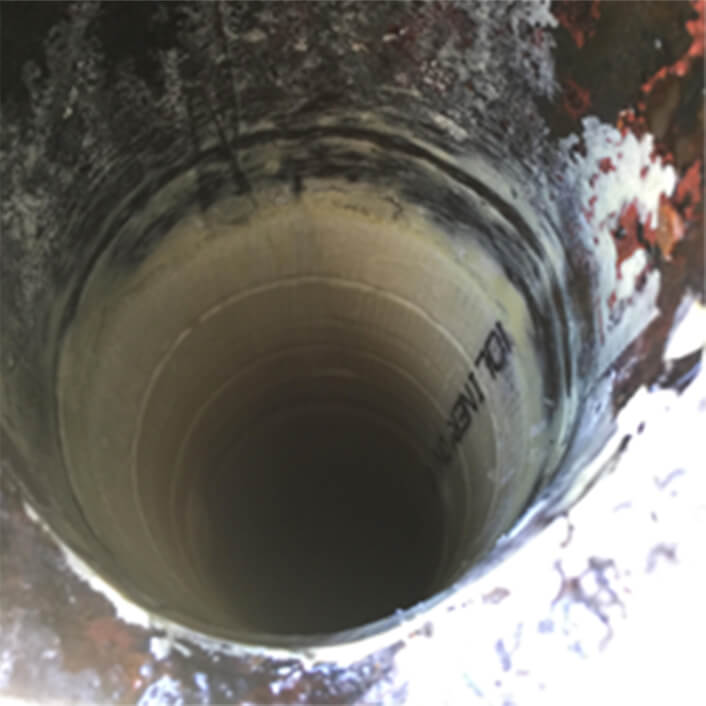Sewer pipes are a critical element of modern sewer systems, and as such, it’s important that they are kept in good condition to protect your household from damage, disgust, and illness. Sewer pipes are responsible for getting sewage and waste out of your house, and their damage could mean your sewage has nowhere to go but back into your home.
Sewer gas is the byproduct of natural human waste, comprised of ammonia, carbon dioxide, methane, and hydrogen sulphide, often giving a distinctive rotten egg smell.
Sewer gas isn’t often toxic at low levels, but chronic exposure can lead to some serious health concerns related to gas poisoning. Sewer pipes are reinforced inside your home and are made to contain the waste until it reaches its destination in the septic tank, but if your sewer line is cracked, broken, outdated, or compromised, the gases from the sewer can escape into your home.
Common Health Issues Caused By Cracked Pipes
Broken sewer pipes can release illness-causing bacteria or raw sewage, which can be detrimental to your health if it makes its way into your body through open wounds, the eyes, or the mouth. This can result in illnesses such as:
- E-coli
- Salmonella
- Pinworms
- Cholera
- Hepatitis A
- Amoebiasis
Each of these illnesses can make you very sick and have the potential to be life-threatening.
One of the most serious problems caused by broken internal sewer pipes is when they release sewer gases such as methane into the property. The worst-case scenario of this is gas poisoning which can be life-threatening. Methane gas has a distinctive sulfur smell, and if this is happening in your home, a call to our team is essential to address the potential risk.
Sewage Gases explained…
The gases from your sewage can cause their own set of issues.
Ammonia is a well-known compound in nail polish remover and household cleaning products, however, at extremely high levels it can result in organ damage leading to death. Ammonia has a distinctive odour, and minor exposure may result in eye, nose, and throat irritation.
Hydrogen Sulfide is the primary gas in sewer gas and can be toxic to the oxygen systems of the body. This gas is what causes the distinctive rotten egg smell of sewer gas, which should alert you that something is not right.
Methane and Carbon Dioxide are largely non-toxic to humans, however, large amounts of exposure can result in a highly flammable outcome, especially when paired with its flammable counterpart ammonia.
Symptoms of a Damaged Sewer Pipe
It is easier than you may think to detect issues within your sewer pipe. The main cause of damage to sewer pipes is old age or wear and tear, but occasionally a tree root or debris will make its way into your pipe to wreak havoc.
Some of the main symptoms of damaged sewer pipes include:
- Persistent sewage backup and blockages at the lowest open drain in your home
- Sewer odour around your home and within the drains
- A persistent mould problem around where the drainage pipe runs in your home
- A reduction in drainage speed or ineffective draining
- Patches of grass that are especially green and lush (the sewage could be acting as a fertiliser)
- Indentation on the lawn or cement above the sewage pipe
- Cracks in the foundation of the home
Each of these symptoms varies in severity, but if either of them is occurring, your health could be at risk due to cracked pipes.
How to Prevent Further Sewer Pipe Issues

Sewer gas is a common byproduct of modern septic systems, but this doesn’t mean it should be allowed to infiltrate the home. If you suspect sewer gas in your home, getting a professional plumber in to inspect the damage is essential. You can help by trying to determine where the leak is coming from and by making sure there is nothing clogging, blocking, or damaging the floor drains, toilets, and vents. While you’re waiting for our crew to arrive, try to open the home and get outside into the fresh air.
The best way to prevent sewer gas poisoning is to contact a professional at the moment you suspect a problem. At The Relining Company, we use exploratory CCTV cameras to examine the inside of your pipes, before using a powerful jet blaster to cut through any dirt or debris that we come across and to prepare the pipe for relining.
From here, we insert a top-of-the-line textile liner into the pipe using air or water pressure, before covering the liner in a thick resin to be pressed against the circumference of the pipe’s interior. We will then re-insert the camera to ensure the pipe has been repaired. This process ensures a watertight pipe with a lifespan of up to 50 years, guaranteed by us for 35 years.
If you suspect your sewer pipe is damaged, we can give you certainty, peace of mind, and perfectly flowing sewers, all while keeping your property intact thanks to trenchless pipe relining.
Book your free pipe relining consultation to get your sewer pipes sorted out once and for all.
Pipe Relining FAQs
Is pipe relining safe?
Pipe relining doesn’t compromise your soil or the foundation of your home thanks to a trenchless no-dig method. This makes it a very safe process to repair your pipes.
Is pipe relining worth it?
Pipe relining is worth it to save the time, money, effort, and often heartache of digging up landscaping to access the pipes. Pipe replacement was once a very invasive process, but with pipe relining, the process is quicker, more straightforward, and doesn’t require as much labour time.
Can leaky pipes make you sick?
Yes, a leaky pipe can make you sick from mould or from sewer gases.
Can you get sick from breathing in raw sewage?
Yes, the gases from raw sewage can be detrimental to human health.
Can you get sick from breathing in sewage smell?
The smells from sewage are caused by gases such as hydrogen sulphate and ammonia which can be toxic to humans in large doses.
Can clogged drains make you sick?
Yes, stagnant water in a clogged drain can be a breeding ground for harmful bacteria and viruses and are the main cause of waterborne illnesses.
Back to Top